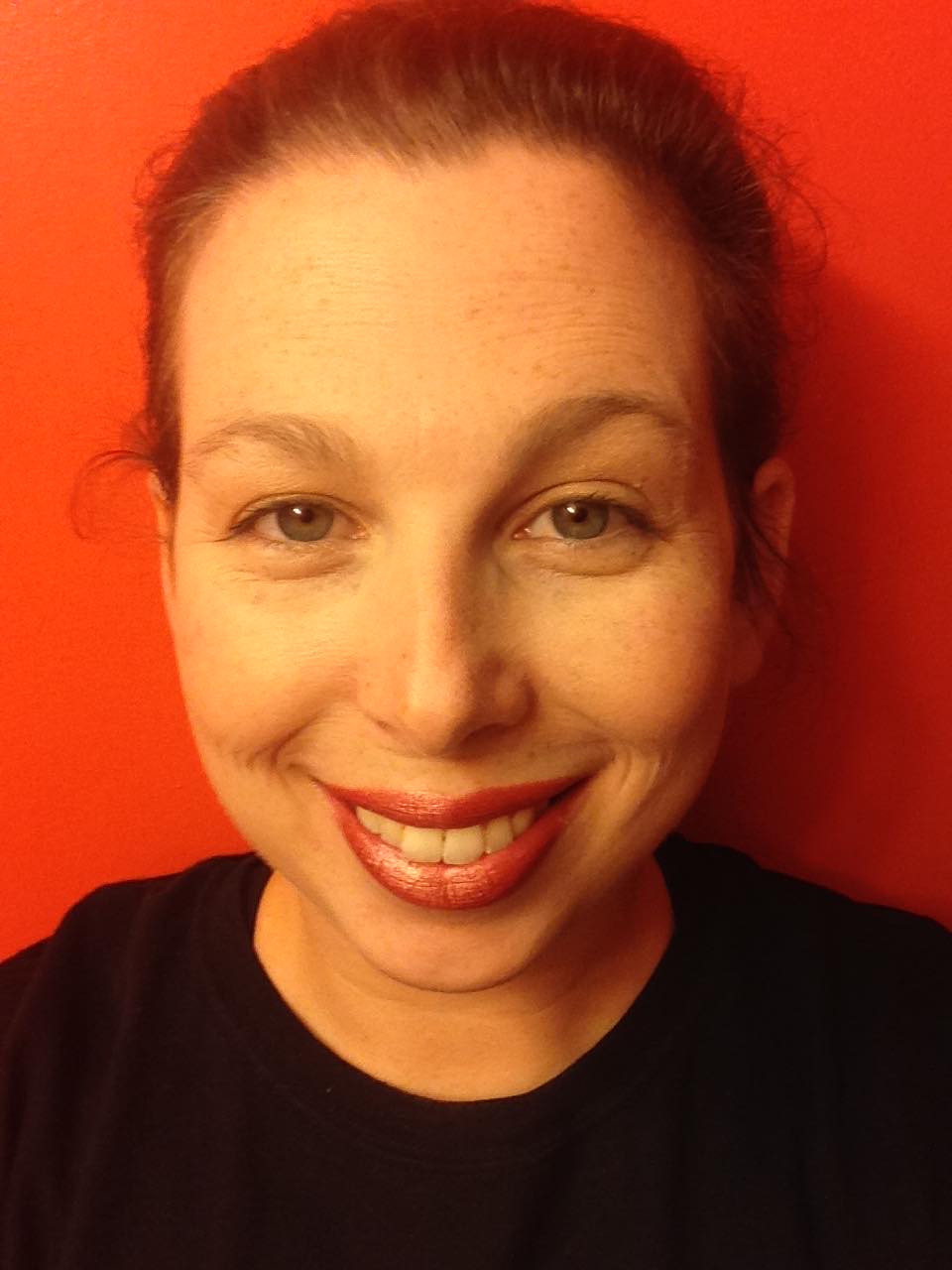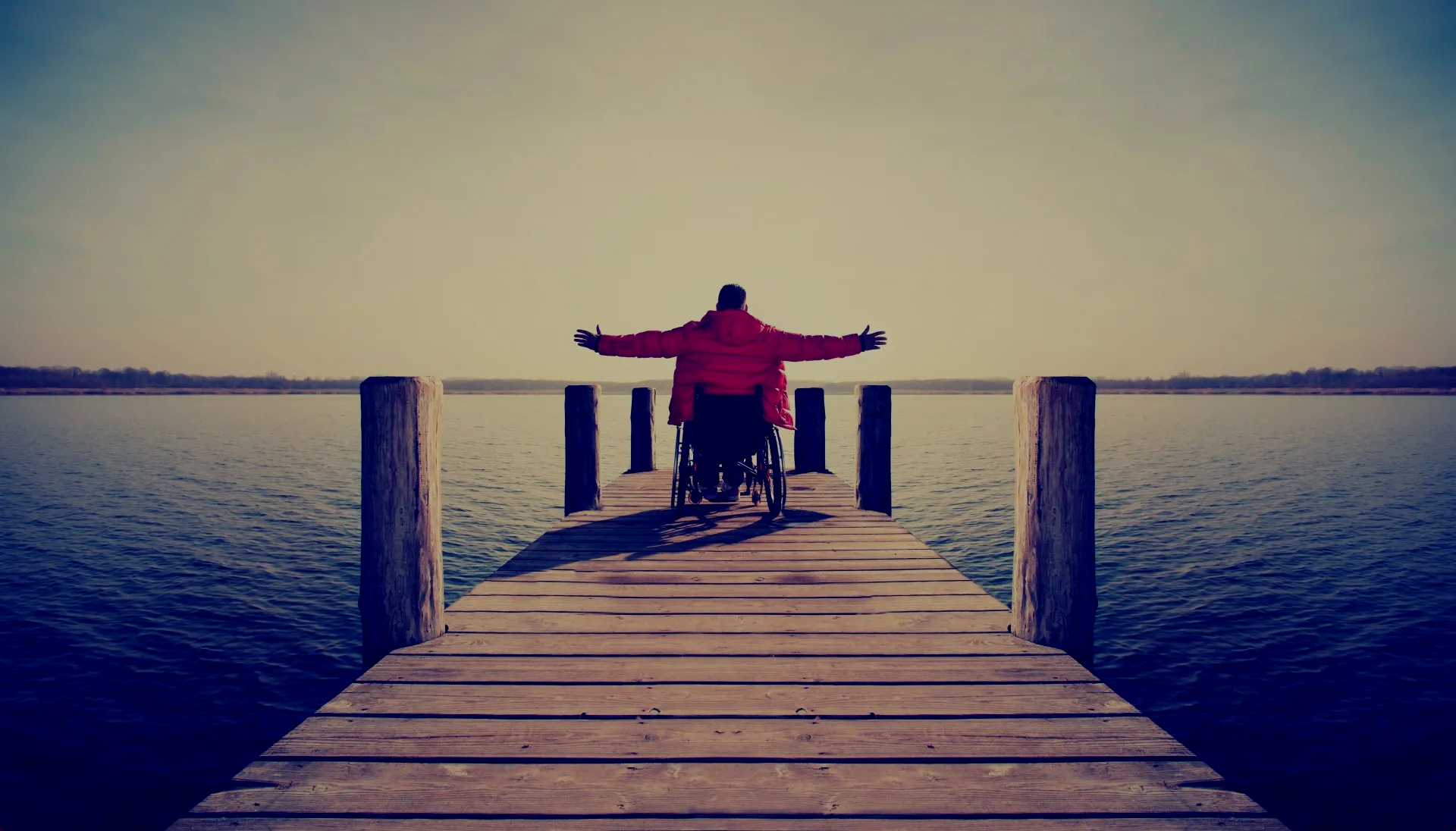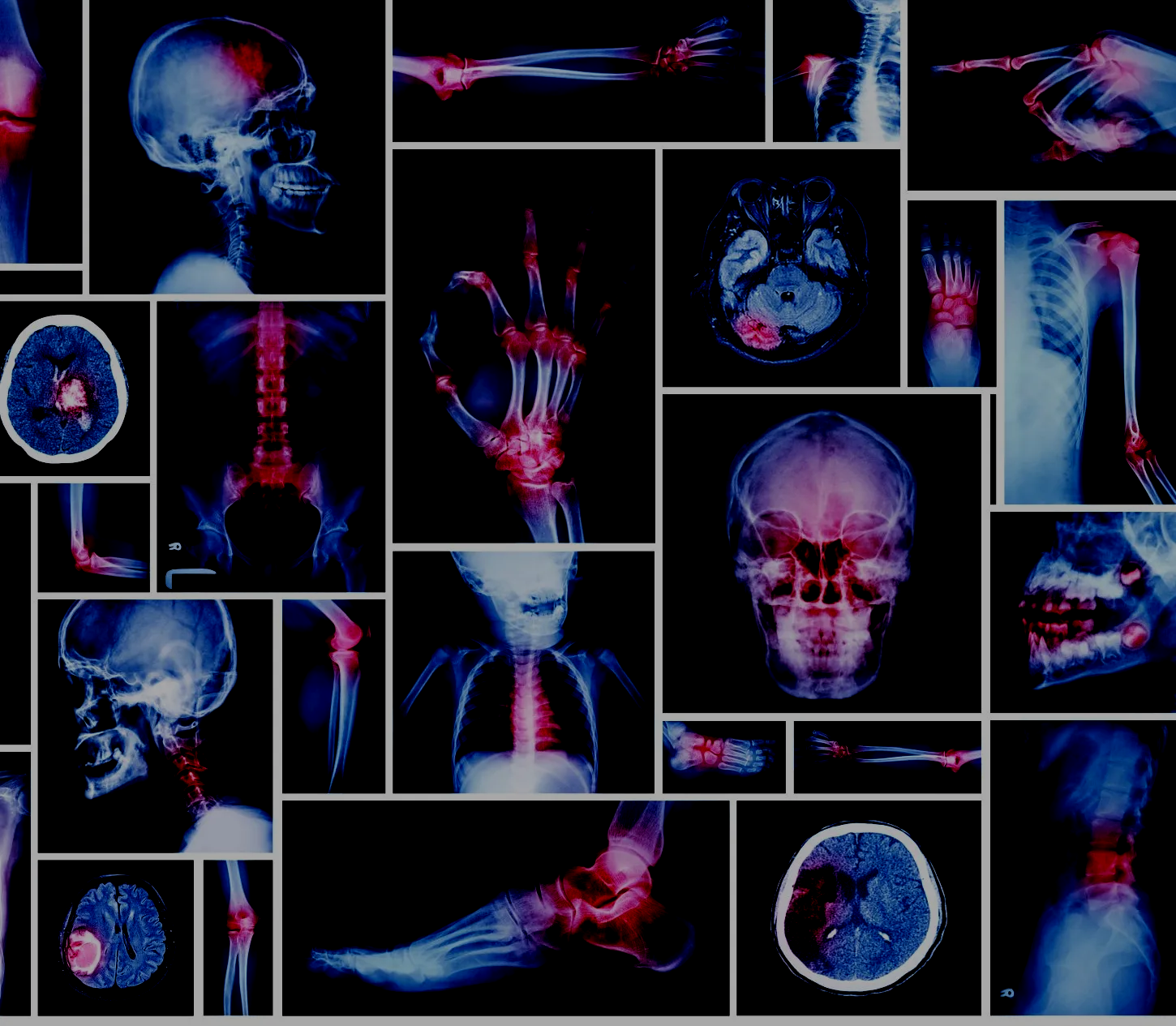Workplace Discrimination
AiArthritis Voices 360
Full Episode #17
Air Date: March 8, 2020
In this episode of AiArthritis Voices 360 , join co-hosts Tiffany Westrich-Robertson and Danielle Dass as they discuss discrimination against disabled people in the workplace. They dig into workplace accommodations, what to do if you are a victim of discrimination at work, and the connection between ableism and poor treatment of disabled employees. They also touch on how both delayed diagnosis and shifting identities can contribute to challenges in finding a work environment right for you. If you are a victim of workplace discrimination, a working person living with chronic illness, or a supervisor of other employees, this is an important episode for you!
You can find, follow, and listen on Podbean, Spotify, Apple Podcast, or where ever you do podcasts. Please follow, rate, and subscribe to the show, then share it with someone. Be sure to check out our top-rated show on Feedspot!
Pull up your seat at the table
Now it's YOUR TURN to join the conversation!
What do you think about this episode?
We want to know what you think! By continuing the conversation with your opinions and perspectives - we all get a better understanding of the problems facing our community. Better yet, through these conversations we can start working and developing solutions.
We mean it when say 360. Not only do we want your input anytime and anywhere, but we also are eager to see where the conversation will take us. So please, "pull up a seat at the table" and let's start talking!
Email us at podcast@aiarthritis.org, message us on social media (find us by searching for @IFAiArthritis)
The AiArthritis Voices Program
Our AiArthritis Voices 360 Talk Show is just a piece of larger program - the AiArthritis Voices Program.
AiArthritis Voices is our program where people living with AiArthritis diseases and other stakeholders who we need 'at the table' to solve problems that impact education, advocacy, and research sign up to have a voice in our initiatives.
If you want to get more involved, and see more of the opportunities we have for you (and all stakeholders) please check out the AiArthritis Voices Program. Unite with others around the world to talk, learn, and connect.
Show Notes: Episode 17 – “Discrimination In The Workplace”
00:52 - Tiffany welcomes listeners and co-host, Danielle Dass
02:09 - Today’s topic is discrimination in the workplace
02:20 – Danielle is a patient living with RA, Primary Biliary Cholangitis (an autoimmune liver disease), and Axial Spondyloarthritis
02:51 – Tiffany has Non-Radiographic Axial Spondyloarthritis
03:28 - Danielle’s workplace discrimination story
11:49 - Danielle was told that working was not in her best interest by her supervisors
12:20 - Treatment by supervisors made Danielle feel worthless and depressed
12:45 - Danielle never had a poor performance evaluation at work, but her supervisors still wanted her to resign
13:47 - Danielle went on disability leave 10 days after receiving the rheumatoid arthritis diagnosis
14:02 - She had medical documentation for all of her symptoms and illness even before receiving an AiArthritis diagnosis
14:39 - Danielle was surprised that the people discriminating against her had been her friends and were “nice” people
15:10 - Supervisors can have so much internalized ableism that they may not realize their beliefs are flawed or prejudicial
16:30 - Tiffany’s employers tried to accommodate her needs, but her needs kept escalating
19:00 - Tiffany changed careers and started this organization so she could have a flexible work environment
19:38 - Accepting that you cannot work anymore even with accommodations can be very emotionally difficult for patients
21:28 - As employers transition to more flexible workplaces, employees living with chronic illness may find it possible to work longer
21:53 - Delay of diagnosis may prevent some patients from transitioning to more flexible careers before they become too sick to make career changes
22:33 - Workplace hostility and discrimination make it even more difficult to adjust to the identity changes that come when people are diagnosed with AiArthritis diseases
24:24 - Because your profession is so entwined with your identity, workplace discrimination can be extremely emotionally damaging
26:05 - Tiffany and Danielle asked people to send in stories about their own workplace discrimination and received quite a few responses over a period of only a few days
28:20 - Several patients reported hostile working conditions. Supervisors may hope that an employee will leave voluntarily if the workplace becomes very hostile
30:10 - The idea that accommodating a disabled employee is “unfair” to others is a pervasive theme in the stories received from other patients
31:00 - Supervisors or co-workers see symptoms of invisible illness and interpret it as laziness or incompetence due to internalized ableism
32:52 - A workplace accommodation is any change in the working environment that allows a person with limitations in their abilities to complete their essential duties
33:50 - Most people don’t have much experience with workplace accommodations and so are not sure how to accommodate specific challenges
34:22 - Employees must be able to perform their essential job duties
35:43 - Many people have difficulty separating the essential job duty from the way it is traditionally accomplished and so may incorrectly assume disabled people cannot perform those duties
36:18 - Internalized ableism is a fear of becoming or being disabled. See Episode 14 for more information about internalized ableism.
37:37 - Because people confused the objective and the method for accomplishing the objective, employers will list functions as “essential duties” that actually are not essential and can be accommodated. This needs to be addressed to make more jobs accessible to disabled people.
39:01 - If employers are listing essential duties incorrectly, they can discriminate against disabled employees without repercussion
39:40 - Often HR specialists who work in compliance roles have little to no experience or training in disability issues or patient advocacy
42:27 - EULAR was instrumental in getting social responsibility laws passed in Europe to prohibit workplace discrimination against patients with rheumatic disease specifically
43:01 - Accommodations requested by employees must be “reasonable”
43:44 - ARC Canada provided information on Canadian Law which said that accommodations are unreasonable if they endanger other people or compromise the organization’s financial viability
44:33 - According to the ADA in the US, reasonable accommodations are those which do not impose an “undue hardship” on the employer, which is commonly considered to be any significant difficulty or expense
45:07 - Whether an accommodation imposes an undue hardship is largely left up to employers to decide with very little oversight
47:33 - People are afraid to file complaints over accommodations because they fear retaliation
49:00 - Most victims of workplace discrimination cannot pursue lawsuits against their employer because they lack the financial resources to retain legal representation
50:40 - The average age of onset of AiArthritis diseases is 20-40, which is right in the prime of a person’s career usually
52:00 - Patients would benefit from resources that provide guidance about specific accommodations or legal aid
52:37 - Anyone experiencing discrimination or who is even concerned about potential discrimination should document everything that might be relevant to their story
53:50 - A physical record of documentation enables victims to have specific conversations with people who may be able to help them
54:49 - Highlighting victim’s stories to appeal to the public about the current state of discrimination in the workplace of disabled people is one of the most important things we can do as a community to change the state of things
55:29 - Victims may remain silent about their discrimination out of a sense of embarrassment
56:33 - If you are a victim of discrimination, you are not alone
57:10 - If you are a victim, the best thing you can do for yourself is to talk to someone about your experience
58:04 - People with disabilities are valuable and our ability to contribute to society should not be stunted by prejudice
58:37 - Disabled people who are given an opportunity to work with their talents can do amazing things
58:44 - If you have been the victim of workplace discrimination, please share your story with us on social media @IfAiArthritis on all platforms or via email to podcast@aiarthritis.org
Patient Voices and All Other Stakeholders - Join our AiArthritis Voices Program and Connect to Opportunities to Have Your Voice Counted!
If you are a patient, a parent of a juvenile patient, or any other stakeholder (doctor, nurse, researcher, industry representative, or other health services person) - are you ready to join the conversation? It's your turn to pull up a seat. Join our new AiArthritis Voices program, where people living with AiArthritis diseases and other stakeholders who we need 'at the table' to solve problems that impact education, advocacy, and research sign up to have a voice in our initiatives. By signing up, you’ll get notified of opportunities to be more involved with this show - including submitting post-episode comments and gaining insider information on future show topics. Patients and all other stakeholders are encouraged to join so we can match you with opportunities to pull up a seat and TOGETHER - as equals - solve the problems of today and tomorrow.
AiArthritis Voices 360 is produced by the International Foundation for Autoimmune and Autoinflammatory Arthritis. Visit us on the web at www.aiarthritis.org/talkshow. Find us on Twitter, Instagram, TikTok, or Facebook (@ifAiArthritis) or email us (podcast@aiarthritis.org).
Be sure to check out our top-rated show on
Feedspot!
Your Co-Hosts & Guests: Who is at the table this episode?
Tiffany Westrich-Robertson
Love the show? Help us make sure we stay on the air by making a donation.
Your contribution helps us continue the work we do every day to improve the lives of millions worldwide.
Sign up for our newsletters
International Foundation for AiArthritis
6605 Nottingham Ave.
St. Louis, MO 63109-2661
Toll Free: 1-877-609-4226
Text: 1-314-282-7214
Copyright 2024. All rights reserved. Information on this site is intended for informational purposes only Our foundation does not engage in the practice of medicine. Please consult a physician to obtain personal healthcare and treatment options. 501(c) 3 Nonprofit Tax ID: 27-1214308.












